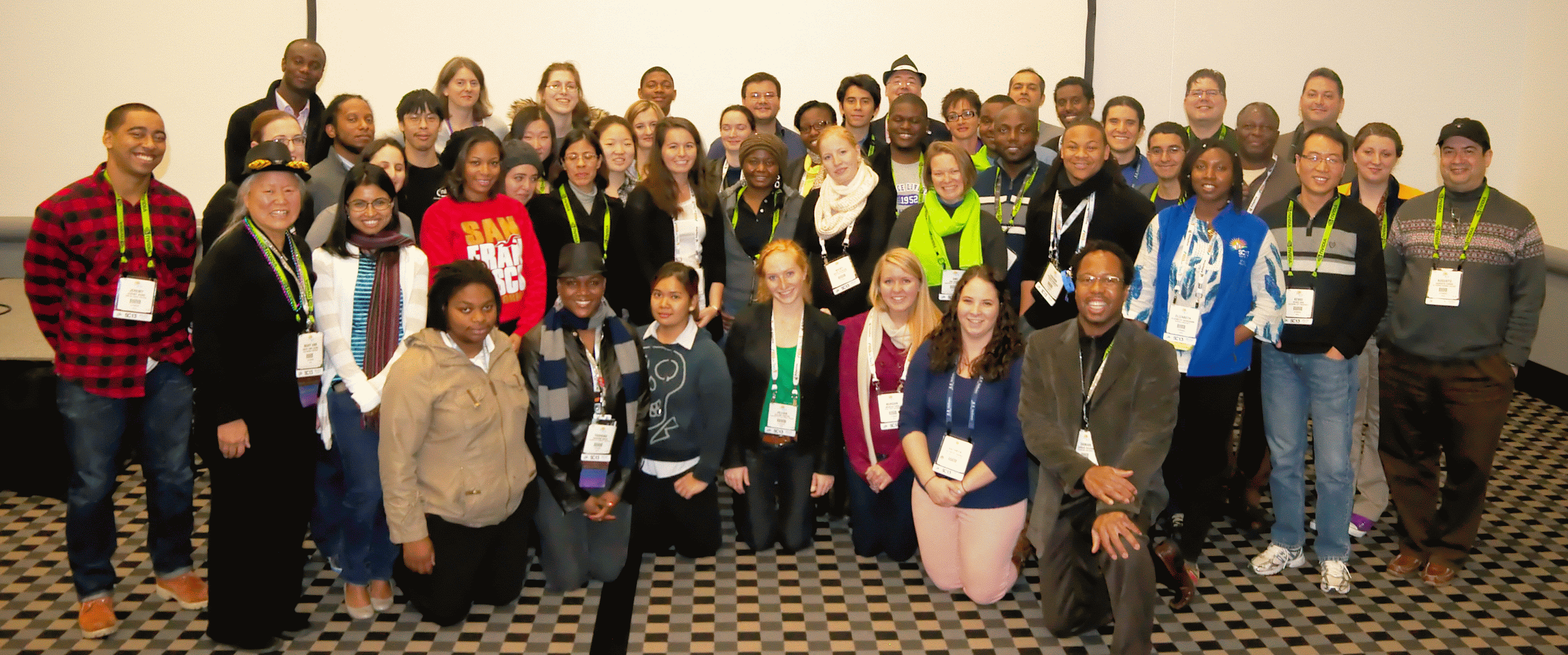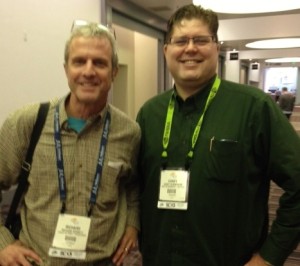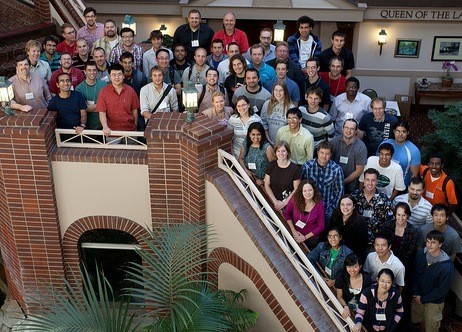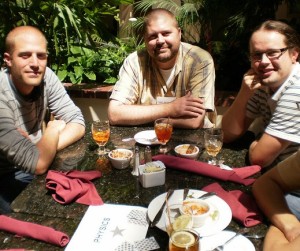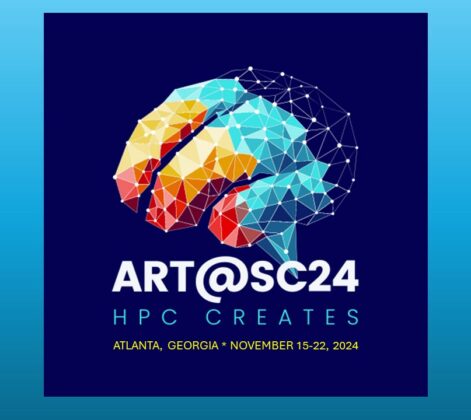Having met Corey, I’m more cognizant of presentation pitfalls. I now take time to make sure everyone understands what I’ve said — especially those who might lack the confidence to raise their hand. I provide my presentation early, so students who struggle with a language barrier or disability have time to review it, in advance.”
SC13 BE Mentor Richard Barrett (Sandia National Laboratories)
This story began in 2011 when STEM-Trek Founder Elizabeth Leake met Corey Henderson (University of Wisconsin-Madison) at the XSEDE/PRACE High-Performance Computing (HPC) International Summer School in South Lake Tahoe, California. Leake was a conference facilitator, and Henderson was one of 60 participants from 20 countries. Henderson, like many people who struggle with disability, explained that he lacked confidence when it came to engaging with others in a crowded conference setting. Leake knew STEM-Trek and the Supercomputing Conference Broader Engagement Program (SC BE) could help.
After the HPC Summer School, Leake encouraged Henderson to participate in STEM-Trek’s FaceBook and LinkedIn communities. She made introductions that expanded his professional network, and continues to share links to research-relevant training and documentation.
In 2013, Leake encouraged Henderson to apply for travel support to attend SC13 through the BE program. Henderson was selected, and that activity spawned a chain-reaction of positive events. STEM-Trek (and Henderson) captured the interest of SC13 BE Deputy Chair Mary Ann Leung. Since then, Leung became a STEM-Trek Education and Outreach Adviser, and Leake collaborates with Leung on Sustainable Horizons Institute, a nonprofit organization Leung formed in 2013. This year, Leung and Leake are leading the SC14 BE program as chair and deputy chair, respectively.
When Leake expressed concern that fewer scholars would be participating in 2014 due to increased costs and less funding, Henderson and his Conference Mentor Richard Barrett offered the following testimonials to illuminate the value of BE for STEM scholars who benefit the most from in-person, one-on-one engagement through the technical conference experience.
SC13 BE alumnus, Corey Henderson (University of Wisconsin-Madison)
As a graduate student in plasma physics at the University of Wisconsin-Madison, my research had taken me into the massively-parallel realm and the development of simulation software for Madison’s experimental physics research group. Because nobody in my department had experience with the cyberinfrastructure I hoped to use, I had limited exposure to the resources and professional network I needed. STEM-Trek had begun to bolster my professional network, but I wanted to attend SC to share my work, see what others in my field were developing and learn to use the tools that would help me accomplish my goals.
Professional networking is especially challenging for me because I’m clinically deaf. Videoconferencing and telecommunication are extremely difficult. I applied for the SC13 BE grant because I knew the in-person experience—especially the opportunity to have a long-time attendee serve as my mentor—would help me overcome my trepidation of engaging with the SC hearing community.
Because I’m deaf, I usually feel isolated when surrounded by unfamiliar faces in large crowds. Dr. Barrett introduced me to others early in the conference, so I was comfortable venturing out on my own later in the week.”
SC13 BE Participant Corey Henderson (UW-Madison)
The SC13 program was excellent! BE provided me with the focus I needed to select the right tools, and to push forward in developing my new parallel simulation code. I’m now eager to share my ideas and give back to the community that welcomed me so heartily. I’m grateful for the experience, and I hope many more people with disabilities can participate in the SC BE program in the future.
SC13 BE Mentor Richard Barrett (Sandia National Laboratories)
Although I’ve been familiar with the SC-BE program for many years, and had mentored BE students in the past, SC13 was the first year I was fortuitous to be assigned a protégé with a disability since the experience provided valuable insight to their unique challenges.
I had understood BE’s primary goal was to boost participants’ confidence by introducing them to new tools, concepts and people. I believed that with knowledge and experience, confidence would automatically follow. Corey made me realize this rule doesn’t always apply to people with disabilities (or others from under-represented groups).
Before he became deaf, Corey had created a successful software development business. When he suddenly lost his hearing, he was no longer able to compete in the fast-paced, and unforgiving commercial sector. He lost the business he had sacrificed much to build, and the experience crushed his confidence—not in his technical aptitude or entrepreneurship, but in his ability to compete in the hearing world.
Traditional methods of delivery assume everyone processes information the same way, and in the same amount of time. Corey quickly drew from my experience to identify shortcuts that allowed him to navigate the conference culture quicker so he could have more time to digest what he had learned, and to establish rapport with the people he met.
I look forward to mentoring many more BE students in the future, and encourage others to participate as mentors. BE is a critical component of the SC conference, and a positive experience for everyone involved.
For more information about this program, visit the SC14 BE web site.

